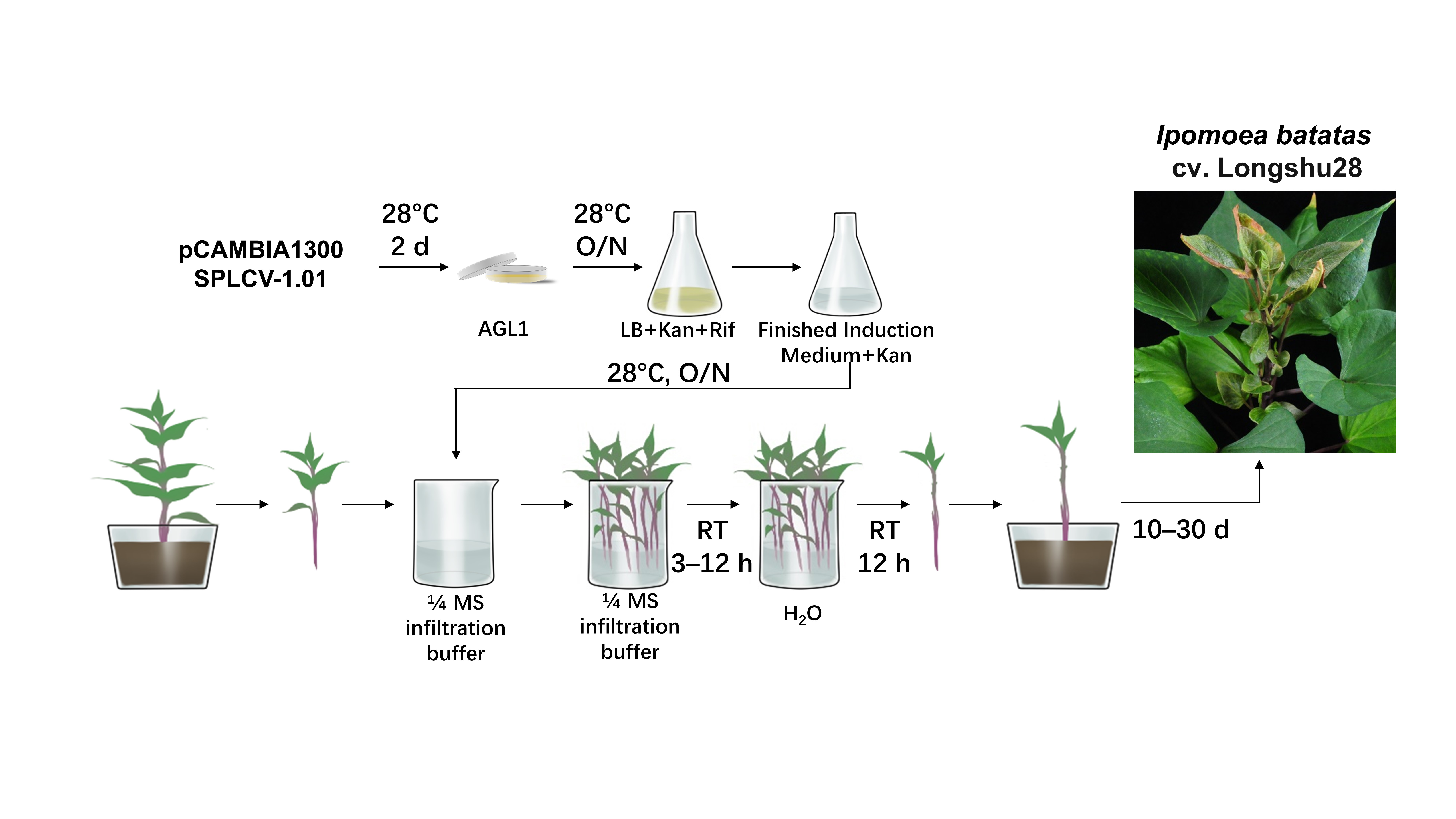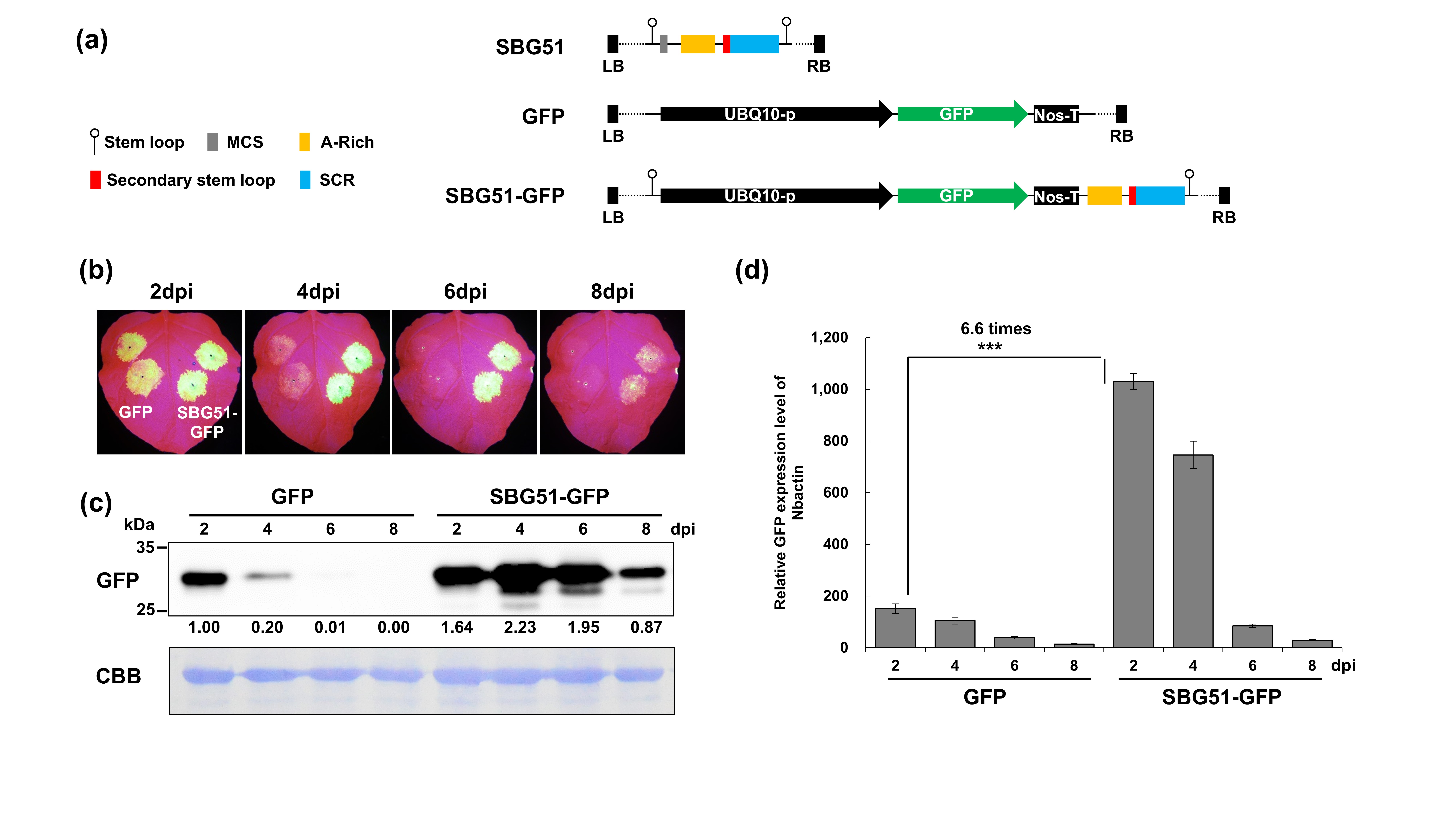Overexpressing the transgene in plants is not only a strategy to study the gene function and generate genetically modified crops but also provides a promising platform to produce recombinant proteins in industrial or pharmaceutical applications. Enhancing the transgene expression level is always a critical step. A regular gene expression cassette includes a promoter, a coding sequencing (CDS), and a terminator. Both promoters and terminators can regulate the gene expression level. Although the viruses have small genomes, they have provided a lot of gene expression elements, vectors, and tools. Exploring new gene expression-enhancing elements in plant viruses has huge development potential.
Geminivirus is a large family of plant viruses, which has circular and single-stranded DNA genomes. Some geminiviruses, named bipartite viruses, have two circular ssDNA genomes (DNA-A and DNA-B), while the others, named monopartite viruses, have one circular ssDNA genome and an additional circular satellite DNA. Sweepoviruses, such as Sweet potato leaf curl virus (SPLCV), are a group of monopartite geminiviruses (genus Begomovirus, family Geminiviridae) that infect Ipomoea plants and cause significant damage. Shulin Deng’s group established a highly efficient Agrobacterium‑mediated nfectious system for SPLCV and an SBG51 deltasatellite‑based VIGS vector (Zhang Yi,et. al, Phytopathology Research 2024) (Figure 1). This work provides a practical method for studying the interaction between sweetpotato and SPLCV and the functional studies of genes in sweetpotato.
Recently, Deng’s group found that the DNA sequence of the SBG51 deltasatellite from SPLCV greatly enhanced the gene expression when flanked downstream of the terminator. The SBG51 sequence increased transient GFP gene expression in Nicotiana benthamiana leaves by up to ~6 times and ~10 times compared to the gene expression controlled by the UBQ10 promoter and 35S promoter alone, respectively (Figure 2). Enhancement of gene expression by the SBG51 sequence was independent of the promoter and terminator and the spatio-temporal pattern of the promoter was maintained. Furthermore, researchers found that the AT-rich elements were sufficient and essential for gene expression enhancement. Dr. Yi Zhang cooperated with Moon (Guangzhou) Biotech Co., Ltd, and investigated the applications of the SBG51 sequence in non-plant systems and synthetic biology. This DNA sequence functioned well in both plants and yeast cells, which provides a novel element to optimize the expression vector and accurately control the gene expression for synthetic biology and gene editing.
The research has been published in Plant Biotechnology Journal (IF5years=12.1), titled “A novel geminivirus‐derived 3′ flanking sequence of terminator mediates the gene expression enhancement”. Dr Yi Zhang from South China Botanical Garden and Dr. Yibo Xian from Moon (Guangzhou) Biotech Co., Ltd are the co-first authors. Dr. Shulin Deng is the crresponding author. This work was supported bygrants from Science and Technology Projects in Guangzhou (E33309), the National Natural Science Foundation of China (32170304 and 31871285), the Guangdong Science and Technology Plan Project (2023B1212060046), and Beijing Life Science Academy (BLSA, No:2024200CD0180).
Reference: Zhang Y., Yang X., Huang L. and Deng S. A highly efficient Agrobacterium-mediated infectious system for Sweet potato leaf curl virus and a deltasatellite-based VIGS vector. Phytopathology Research 2024 6(23).
The link of this article:https://doi.org/10.1111/pbi.14561





